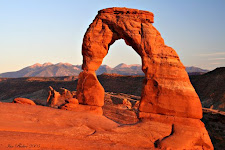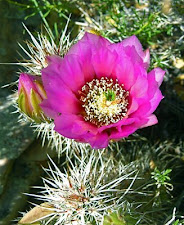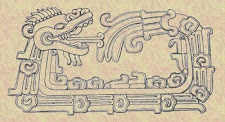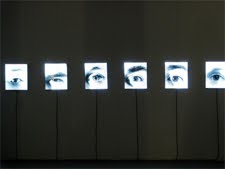How do we find poetry? In English classes? In the New Yorker? Chiseled onto the back of a public bathroom door? Read over a loud speaker once every four years at the Presidential inauguration? It doesn't seem to be a prevalent craft in our popular culture anymore. It doesn't serve to inform, inspire and guide us the way it once did. We have a Poet Laureate... but can you name her? One of the poets below, Billy Collins, was Poet Laureate from 2001-2003. But that's not how I found out about him. He gave a reading at an elementary school in the town where I grew up. My mother attended, bought two of his books and asked him to sign them to me for my birthday. I loved them so much I read one of his poems at my father's funeral. Thanks, Mom.
I know of John Updike mainly because he loved golf and wrote many funny short stories and essays on the game that have appeared in the collections of golf stories that everyone gives me for Christmas. But I never thought of him as a poet until the day he died and Jim Lehrer gave him a nice fifteen minute tribute on PBS including a reading of a poem he wrote called "A Rescue." They also aired a ten minute interview with him from 2003 in which he described his own writing as "Bright and hopeful attempts to bottle some small portion of the truth." In a forward to one of his books he wrote, "My duty was to describe reality as it had come to me, to give the mundane its beautiful due."
I studied literature in college and have a book of Keats' collected poems on my bookshelf, but it wasn't until I saw Jane Campion's beautiful movie "Bright Star" that I was touched by the full force of his poetry. In a New York Times review of the movie, A.O. Scott writes, "The lives of poets have been, in general, badly served on film, either neglected altogether or puffed up with sentiment and solemnity and there are times in Bright Star when Keats, played by the pale and skinny British actor Ben Whishaw, trembles on the edge of caricature. He broods, he looks dreamily at flowers and trees and rocks, but these moments, rather than feeling studied or obvious, arrive with startling keenness and disarming beauty, much in the way that Keats' own lyrics do. His verses can at first seem ornate and sentimental, but on repeated readings, they have a way of gaining in force and freshness. And while no film can hope to take you inside the process by which these poems were made, Ms. Campion allows you to hear them spoken aloud as if for the first time. You will want to stay until the very last bit of the end credits, not necessarily to read the name of each gaffer and grip, but rather to savor every syllable of Mr. Whishaw's recitation of Ode to a Nightingale."
It is true. Seeing the creation of his poems and hearing them recited within the context of his life moved me in a way that reading them never did.
In each of these examples, my life has been made richer by the experience of poetry - feeling its truth and its power to unify us and awaken in us an appreciation of every precious breath of life. This seems especially important within the increasing din of superficiality and cynicism. I hope each of us is blessed with an opportunity to find true moments of silence and reflection when the words of the poet can strip back the layers that shield us from the passionate brilliance of our souls.
Bright Star
by John Keats
Bright star, would I were stedfast as thou art---
Not in lone splendour hung aloft the night
And watching, with eternal lids apart,
Like nature's patient, sleepless Eremite*,
The moving waters at their priestlike task
Of pure ablution round earth's human shores,
Or gazing on the new soft-fallen mask
Of snow upon the mountains and the moors---
No---yet still stedfast, still unchangeable,
Pillowed upon my fair love's ripening breast,
To feel for ever its soft fall and swell,
Awake for ever in a sweet unrest,
Still, still to hear her tender-taken breath,
And so live ever---or else swoon in death.
*Origin of the English word hermit from eremos (Greek adj.) - empty, desolate; eremia (n.) - desert; eremite (n.) - someone who lives alone in the desert. The reference here is to an unidentified star which, like a hermit, sits apart from the world.
A Rescue
by John Updike
Today I wrote some words that will see print.
Maybe they will last "forever," in that
someone will read them, their ink making
a light scratch on his mind, or hers.
I think back with greater satisfaction
upon a yellow bird--a goldfinch?--
that had flown into the garden shed
and could not get out,
battering its wings on the deceptive light
of the dusty, warped-shut window.
Without much reflection, for once, I stepped
to where its panicked heart
was making commotion, the flared wings drumming,
and with clumsy soft hands
pinned it against a pane,
held loosely cupped
this agitated essence of the air,
and through the open door released it,
like a self-flung ball,
to all that lovely perishing outdoors.
Thesaurus
by Billy Collins
It could be the name of a prehistoric beast
that roamed the Paleozoic earth, rising up
on its hind legs to show off its large vocabulary,
or some lover in a myth who is metamorphosed into a book.
It means treasury, but it is just a place
where words congregate with their relatives,
a big park where hundreds of family reunions
are always being held,
house, home, abode, dwelling, lodgings, and digs,
all sharing the same picnic basket and thermos;
hairy, hirsute, woolly, furry, fleecy, and shaggy
all running a sack race or throwing horseshoes,
inert, static, motionless, fixed and immobile
standing and kneeling in rows for a group photograph.
Here father is next to sire and brother close
to sibling, separated only by fine shades of meaning.
And every group has its odd cousin, the one
who traveled the farthest to be here:
astereognosis, polydipsia, or some eleven
syllable, unpronounceable substitute for the word tool.
Even their own relatives have to squint at their name tags.
I can see my own copy up on a high shelf.
I rarely open it, because I know there is no
such thing as a synonym and because I get nervous
around people who always assemble with their own kind,
forming clubs and nailing signs to closed front doors
while others huddle alone in the dark streets.
I would rather see words out on their own, away
from their families and the warehouse of Roget,
wandering the world where they sometimes fall
in love with a completely different word.
Surely, you have seen pairs of them standing forever
next to each other on the same line inside a poem,
a small chapel where weddings like these,
between perfect strangers, can take place.
travel, philosophy, art, culture
Blog Archive
Music
Video: Derek Paravicini - Musical Genius
Video: M Ward - Chinese TranslationMusic
Video: Jennifer Grout - sings Umm Kulthum on "Arabs Got Talent"
Photos
Baja Surf Trip
Topanga Canyon, Fall 2010
Devils Tower Sequence
Spring/Summer 2010 Travel Pics
More Travel Pics
My Summer Home in Oregon
Clark Little Surf Photography
Videos
Music: M Ward - Chinese Translation
Interview: linguist David Harrison
Music: Derek Paravicini - Musical Genius
Video: Derek Paravicini - Musical Genius
Video: M Ward - Chinese TranslationMusic
Video: Jennifer Grout - sings Umm Kulthum on "Arabs Got Talent"
Photos
Baja Surf Trip
Topanga Canyon, Fall 2010
Devils Tower Sequence
Spring/Summer 2010 Travel Pics
More Travel Pics
My Summer Home in Oregon
Clark Little Surf Photography
Videos
Music: M Ward - Chinese Translation
Interview: linguist David Harrison
Music: Derek Paravicini - Musical Genius
Video: One in 8 Million: photo essays of individual New Yorker's lives (from The New York Times)
Music: Jennifer Grout - Sings Umm Kulthum on "Arabs Got Talent"
Poetry
Music: Jennifer Grout - Sings Umm Kulthum on "Arabs Got Talent"
Poetry
Denice Cacace - Haiku
John Keats - Bright Star
John Updike - A Rescue
Billy Collins - Thesaurus
John Dunn - Handwritten Letter
John Dunn - Gettin' All Poetiky
Johann Wolfgang Von Goethe - The Erl-King
Books
Edward Abbey - Manhattan Twilight, Hoboken Night (from The Journey Home)
Don Delillo - Underworld
Jorge Luis Borges - The Secret Miracle (From Labyrinths)
Robert Penn Warren - All The King's Men
John Keats - Bright Star
John Updike - A Rescue
Billy Collins - Thesaurus
John Dunn - Handwritten Letter
John Dunn - Gettin' All Poetiky
Johann Wolfgang Von Goethe - The Erl-King
Books
Edward Abbey - Manhattan Twilight, Hoboken Night (from The Journey Home)
Don Delillo - Underworld
Jorge Luis Borges - The Secret Miracle (From Labyrinths)
Robert Penn Warren - All The King's Men
Essays
Multiple authors: Fifteen Unforgettable Movie Moments (from Salon)
John Dunn: LA Love Letter
John Dunn: Impressions of the Badlands, Black Hills and Little Bighorn
Matt Power: Mississippi Drift - River Vagrants in the Age of Wal-Mart (from Harper's)
Kevin Fedarko: High in Hell - An Epic Drug Fueled Travel Story (from Esquire)
John Dunn: Getting Myspaced - Self Discovery Through Social Networking
John Bradley: Golf Bro Will Mackenzie - Making it Cool to Watch Golf Again (from Outside)
John Dunn: Golf Course Review: Old Macdonald - Doak's Encore at Bandon
John Dunn: LA Love Letter
John Dunn: Impressions of the Badlands, Black Hills and Little Bighorn
Matt Power: Mississippi Drift - River Vagrants in the Age of Wal-Mart (from Harper's)
Kevin Fedarko: High in Hell - An Epic Drug Fueled Travel Story (from Esquire)
John Dunn: Getting Myspaced - Self Discovery Through Social Networking
John Bradley: Golf Bro Will Mackenzie - Making it Cool to Watch Golf Again (from Outside)
John Dunn: Golf Course Review: Old Macdonald - Doak's Encore at Bandon

"A weird, lovely, fantastic object out of nature like Delicate Arch has the curious ability to remind us - like rock and sunlight and wind and wildflowers - that out there is a different world, older and greater and deeper by far than ours, a world which sustains the little world of man as sea and sky surround and sustain a ship. For a little while we are again able to see, as the child sees, a world of marvels. For a few moments we discover that nothing can be taken for granted, for if this ring of stone is marvelous, then all which shaped it is marvelous, and our journey here on Earth, able to see and touch and hear in the midst of tangible and mysterious things-in-themselves, is the most strange and daring of all adventures." - Edward Abbey, Desert Solitaire

"It is impossible to convey the life-sensation of any given epoch of one's existence - that which makes its truth, its meaning, its subtle penetrating essence. It is impossible. We live, as we dream, alone." - Joseph Conrad, Heart of Darkness

"Full circle from the tomb of the womb to the womb of the tomb we come, an ambiguous, enigmatical incursion into a world of solid matter that is soon to melt from us like the substance of a dream." - Joseph Campbell, Hero with a 1000 Faces

"The cactus of the high desert is a small grubby, obscure and humble vegetable associated with cattle dung and overgrazing, interesting only when you tangle with it the wrong way. Yet from this nest of thorns, this snare of hooks and fiery spines, is born once each year a splendid flower. It is unpluckable and except to an insect almost unapproachable, yet soft, lovely, sweet, desirable, exemplifying better than the rose among thorns the unity of opposites" - Edward Abbey, Desert Solitaire

"He knew that the very memory of the piano falsified still further the perspective in which he saw the elements of music, that the field open to the musician is not a miserable stave of seven notes, but an immeasurable keyboard on which, here and there only, separated by the thick darkness of its unexplored tracts, some few of the millions of keys of tenderness, of passion, of courage, of serenity, which compose it, each one differing from all the rest as one universe differs from another, have been discovered by a few great artists who do us all a service, when they awaken in us the emotion corresponding to the theme they have discovered, of showing us what richness, what variety lies hidden, unknown to us, in that vast, unfathomed and forbidden night of our soul." - Marcel Proust, Swann's Way

"Perhaps it is not-being that is the true state, and all our dreams of life are inexistent. We shall perish, but we have as hostages these phrases of music, these divine captives who will follow and share our fate. And death in their company is somehow less bitter, less inglorious, perhaps even less probable." - Marcel Proust, Swann's Way

"The creature was very young. He was alone in a dread universe. I crept on my knees and crouched beside him. It was a small fox pup from a den under the timbers who looked up at me. God knows what had become of his brothers and sisters. His parents must not have been home from hunting. He innocently selected what I think was a chicken bone from an untidy pile of splintered rubbish and shook it at me invitingly... the universe was swinging in some fantastic fashion around to present its face and the face was so small that the universe itself was laughing.
It was not a time for human dignity. It was a time only for the careful observance of amenities written behind the stars. Gravely I arranged my forepaws while the puppy whimpered with ill-concealed excitement. I drew the breath of a fox's den into my nostrils. On impulse, I picked up clumsily a whiter bone and shook it in teeth that had not entirely forgotten their original purpose. Round and round we tumbled and for just one ecstatic moment I held the universe at bay by the simple expedient of sitting on my haunches before a fox den and tumbling about with a chicken bone. It is the gravest, most meaningful act I shall ever accomplish, but, as Thoreau once remarked of some peculiar errand of his own, there is no use reporting it to the Royal Society." - Loren Eiseley, The Star Thrower
It was not a time for human dignity. It was a time only for the careful observance of amenities written behind the stars. Gravely I arranged my forepaws while the puppy whimpered with ill-concealed excitement. I drew the breath of a fox's den into my nostrils. On impulse, I picked up clumsily a whiter bone and shook it in teeth that had not entirely forgotten their original purpose. Round and round we tumbled and for just one ecstatic moment I held the universe at bay by the simple expedient of sitting on my haunches before a fox den and tumbling about with a chicken bone. It is the gravest, most meaningful act I shall ever accomplish, but, as Thoreau once remarked of some peculiar errand of his own, there is no use reporting it to the Royal Society." - Loren Eiseley, The Star Thrower

The moment I stepped out the front door I was faced again with Manhattan. There it was, oh splendid ship of concrete and steel, aluminum, glass and electricity, forging forever up the dark river. (The hudson - like a river of oil, filthy and rich, gleaming with silver lights.) Manhattan at twilight: floating gardens of tender neon, the lavender towers where each window glittered at sundown with reflected incandescence, where each crosstown street became at evening a gash of golden fire, and the endless flow of the endless traffic on the West Side Highway resembled a luminous necklace strung round the island's shoulders. - Edward Abbey, Manhattan Twilight, Hoboken Night

Sometimes I see something so moving I know I'm not supposed to linger. See it and leave. If you stay too long, you wear out the wordless shock. Love it and trust it and leave. - Don Delillo, Underworld

Yes. Because they were human men. They were trying to write down the heart's truth out of the heart's driving complexity, for all the complex and troubled hearts which would beat after them. - William Faulkner, The Bear

He picks up speed and seems to lose his gangliness, the slouchy funk of hormones and unbelonging and all the stammering things that seal his adolescence. He is just a running boy, a half-seen figure from the streets, but the way running reveals some clue to being, the way a runner bares himself to consciousness, this is how the dark-skinned kid seems to open to the world, how the bloodrush of a dozen strides bring him into eloquence. - Don Delillo, Underworld

If somewhere beneath the blood, the past must beat in me to make a rhythm of survival for itself - to go on as this half-life which echoes as a second pulse inside the ticking moments of my existence - if this is what must be, why is the pattern of remembered instants so uneven, so gapped and rutted and plunging and soaring? I can only believe it is because memory takes its pattern from the earliest moments of the mind, from childhood. And childhood is a most queer flame-lit and shadow-chilled time. - Ivan Doig, This House of Sky

The storm front towered above them and the wind was cool on their sweating faces. They slumped bleary-eyed in their saddles and looked at one another. Shrouded in the black thunderheads the distant lightning glowed mutely like welding seen through foundry smoke. As if repairs were under way at some flawed place in the iron dark of the world. - Cormac McCarthy, All the Pretty Horses
.jpg)
Men believe the cure for war is war as the curandero prescribes the serpent's flesh for its bite. - Cormac McCarthy, All the Pretty Horses

Big production, no story, as they say around the movie lots. I guess Sylvia is happy enough, though not necessarily with me. In our circle that's not too important. There's always something to do if you don't have to work or consider the cost. It's no real fun, but the rich don't know that. They never had any. They never want anything very hard except maybe somebody else's wife and that's a pretty pale desire compared to the way a plumber's wife wants new curtains for the living room. - Raymond Chandler, The Long Goodbye
The charged atmosphere made every little thing stand out as a performance, a movement distinct and vastly important. It was one of those hypersensitive moments when all your automatic movements, however long established, however habitual, become separate acts of will. You are like a man learning to walk after polio. You take nothing for granted, absolutely nothing at all. - Raymond Chandler, The Long Goodbye
We live entirely, especially if we are writers, by the imposition of a narrative line upon disparate images, by the "ideas" with which we have learned to freeze the shifting phantasmagoria which is our actual experience. - Joan Didion, The White Album

Seattle rain smells different from New Orleans rain... New Orleans rain smells of sulfur and hibiscus, trumpet metal, thunder and sweat. Seattle rain, the widespread rain of the Great Northwest, smells of green ice and sumi ink, of geology and silence and minnow breath. - Tom Robbins, Jitterbug Perfume

"There was a special pallor in the face of the New York emigres. Lasher and Grappa in particular. They had the wanness of obsession, of powerful appetites confined to small spaces. Murray said that Eliot Nasher had film noir face. His features were sharply defined, his hair perfumed with some oily extract. I had the curious thought that these men were nostalgic for black-and-white, their longings dominated by achromatic values, personal extremes of postwar urban gray." - Don Delillo, White Noise







No comments:
Post a Comment